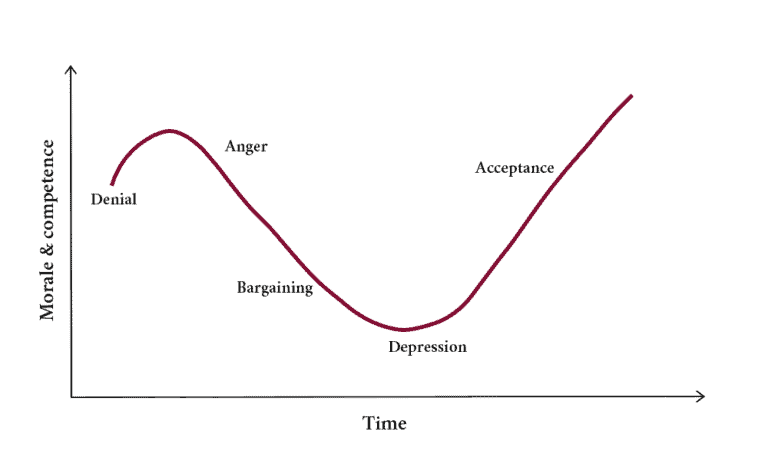- 98143 70700
- info@thehermitage.rehab
- 22, Circular road, Opp. VR Ambarsar, Amritsar
Many times, grief is considered to be related to an insurmountable loss. But the concept of grief is greater than that and is usually not talked about or even thought about in the process of recovery. Patients with addiction and their families may not understand the role and the power of grief in the early stages of sobriety and may overlook how important a part of grief recovery may have.
When we talk about recovery being a journey and not a destination, we need to accept that this journey is going to have both its highs and lows. A patient of addiction embarking through this process even though gaining a more substantial life but on the other hand will be going through the loss of acquired behavior patterns, the freedom which the drugs/alcohol granted, and even the substance itself. This knowledge may sound a little paradoxical.

Patients and their families may or may not undergo the various stages of grief but the sufferer needs to understand what grief may feel like to openly accept it and take its aid in moving forward in life.
Hence, these stages are;
Denial commonly is also known as a shock absorber, meaning, it is a kind of defense mechanism that our mind plays to prevent us from going into a state of shock. Many times, patients with addiction will be unable to grasp the reality that they are sick and in need of help, and families on the other hand may justify the actions of patients and find reasonable explanations for their behavior.
Anger is a usual response when it comes to grieving as the ability to accept the loss of something or the ability to take responsibility for one’s actions can be extremely hard and difficult to acknowledge. Patients and families alike therefore unknowingly use anger, blaming, enabling, or provoking for their grief, pain, and unrest.

The stage of Bargaining revolves around both patient and the family not accepting that there is some kind of problem but having a bit of insight that things are not normal. Usually, in this phase patients may make promises and excuses, and demands the last chance, and families in turn might try to find ways to subdue their patient’s addictive behavior patterns.
Stage 4 of grief depicts the beginning of true surrender where the patient instead of blaming, excusing, or finding ways out delves into his true emotions and realizes the damage his addiction has incurred to not only himself but to his loved ones as well. Family and patients similarly feel a dip at this point as they can see through their past mistakes and what all addiction has left after destructing their relationships and their very home.
The last stage and the most optimistic one is that of Acceptance. During this stage, the Patient accepts that he is a diseased person, has maintained some level of sobriety through continuous participation in the program, and can visualize what his life will look like down the road of recovery. The family also through their regular training sessions have developed a skill set and understand fully what is the disease of addiction and how to manage the patient through his illness.
It has been three decades since Dr. JPS Bhatia started his journey of treating patients and families suffering from this deadly disease. With the help of a specially curated program at the Hermitage Rehab, the team of professionals, through their empathetic approach can help n number of victims through the stages of grief.
The purpose of the program being run at The Hermitage Rehab is to not only establish long-due sobriety in patients and healthy relationships in their families but to also provide aid throughout their lives for maintaining the previously achieved goals and the dream of being in recovery everlasting.
WhatsApp us